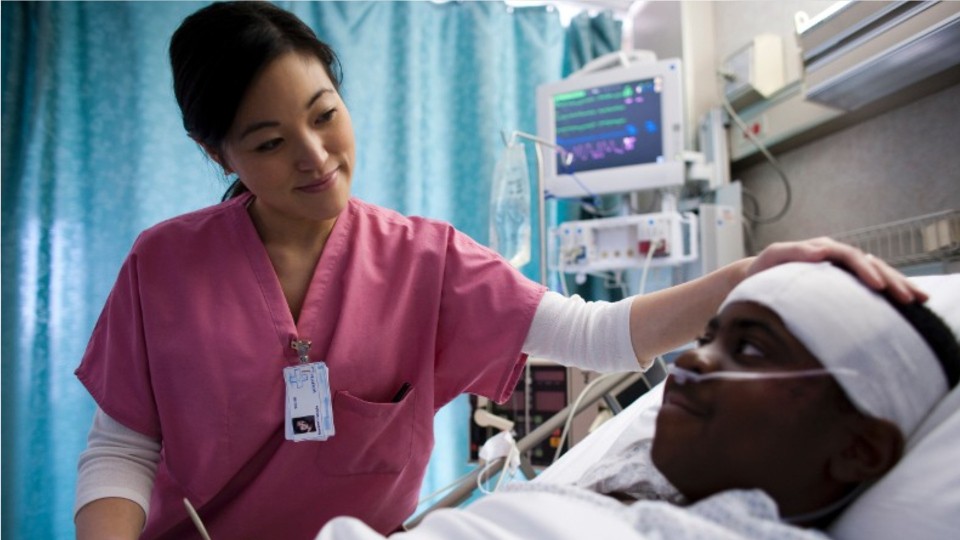Critical Care Nurses
Critical Care Nurse Practitioner, Critical Care Registered Nurse (CCRN), ICU Nurse (Intensive Care Unit Nurse), Staff Nurse
What they do:
Provide specialized nursing care for patients in critical or coronary care units.
On the job, you would:
- Evaluate patients' vital signs or laboratory data to determine emergency intervention needs.
- Monitor patients for changes in status and indications of conditions such as sepsis or shock and institute appropriate interventions.
- Administer medications intravenously, by injection, orally, through gastric tubes, or by other methods.
Knowledge
Health
- medicine and dentistry
- therapy and counseling
Business
- customer service
Arts and Humanities
- English language
Math and Science
- psychology
Skills
Basic Skills
- keeping track of how well people and/or groups are doing in order to make improvements
- listening to others, not interrupting, and asking good questions
Problem Solving
- noticing a problem and figuring out the best way to solve it
Social
- looking for ways to help people
- understanding people's reactions
Abilities
Verbal
- listen and understand what people say
- communicate by speaking
Ideas and Logic
- notice when problems happen
- make general rules or come up with answers from lots of detailed information
Visual Understanding
- see hidden patterns
- quickly compare groups of letters, numbers, pictures, or other things
Attention
- pay attention to something without being distracted
Personality
People interested in this work like activities that include helping people, teaching, and talking.
They do well at jobs that need:
- Attention to Detail
- Integrity
- Dependability
- Stress Tolerance
- Concern for Others
- Cooperation
Technology
You might use software like this on the job:
Medical software
- eClinicalWorks EHR software
- Epic Systems
Cloud-based data access and sharing software
- Google Drive
- Microsoft SharePoint
Information retrieval or search software
- American Association of Critical Care Nurses AACN Medicopeia
- PEPID RN Critical Care RNCC
Education
Education: (rated 4 of 5)
bachelor's degree or
associate's degree
usually needed
associate's degree
usually needed
Job Outlook
Bright
New job opportunities are very likely in the future.
Explore More
You might like a career in one of these industries:
See more details at O*NET OnLine about critical care nurses.





